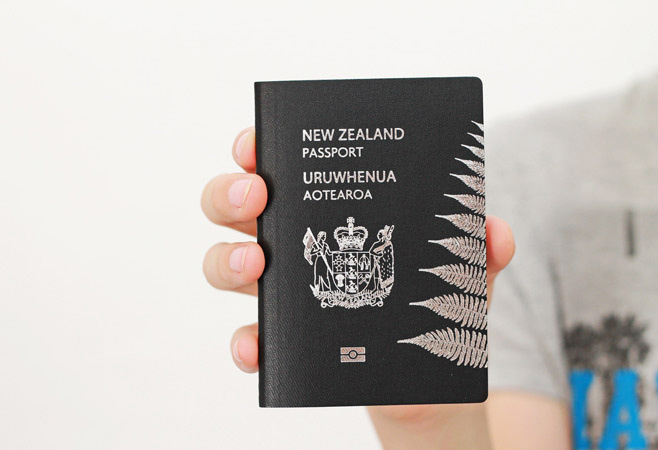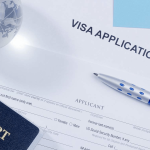From the stunning landscapes of its mountains and beaches to the vibrant Maori culture, New Zealand is a country that captures the hearts of travelers from around the world. But before you can explore this enchanting destination, you’ll need to navigate the maze of visa options available. In this comprehensive guide, we’ll take you through the different types of visas for New Zealand, helping you understand which one is right for your travel plans. Whether you’re dreaming of a working holiday or a permanent move, we’ve got you covered with all the information you need to make your journey to Aotearoa a reality. NEW ZEALAND VISA TYPES
Introduction to New Zealand Visas
New Zealand, also known as the Land of the Long White Cloud, is a beautiful country with stunning landscapes, vibrant cities, and a welcoming culture. It’s no surprise that many people from around the world dream of visiting or even immigrating to this picturesque nation. However, before you can step foot in this paradise, you will need to obtain a visa.
A visa is an official document issued by the New Zealand government that allows foreign nationals to enter and stay in the country for a specific period. The type of visa you require depends on your purpose of visit and how long you intend to stay in New Zealand.
There are various types of visas available for different purposes such as tourism, study, work, family reunification, and business. In this comprehensive guide, we will explore the different types of New Zealand visas and their requirements.
1. Visitor Visa
The visitor visa is designed for individuals who wish to visit New Zealand for tourism or recreational purposes. It allows holders to stay in the country for up to 9 months within an 18-month period. This visa can also be used for short-term study programs (up to 3 months) or attending conferences or events. NEW ZEALAND VISITOR VISA INFORMATION
2. Student Visa
If you are planning on studying in New Zealand for more than three months, then you will need a student visa. To apply for this visa category, you must have been accepted into an accredited educational institution in New Zealand and provide evidence of sufficient funds to cover your tuition fees and living expenses.
3. Work Visa
The work visa is suitable for skilled workers who have been offered a job by an employer in New Zealand or have critical skills that are needed in specific industries within the country.
4. Entrepreneur Work Visa
This type of visa is ideal for entrepreneurs who want to start their own business venture in New Zealand. Applicants must meet certain criteria such as having enough capital and relevant business experience to be eligible for this visa.
5. Family Visa
If you have a family member who is a New Zealand citizen or resident, you may be eligible for a family visa. This category includes visas for partners, parents, and dependent children of New Zealand citizens or residents.
6. Residence Visa
The residence visa allows individuals to live and work in New Zealand permanently. It can be obtained through skilled migration, investment, or the family sponsorship program.
Obtaining a visa is the first step towards your dream of visiting or living in New Zealand. It’s essential to determine which type of visa best suits your needs and carefully follow the application process to increase your chances of approval. In the following sections, we will delve deeper into each type of visa and provide you with all the necessary information to make an informed decision.
Requirements for a New Zealand Visa
Obtaining a visa is an essential step for anyone wishing to travel to New Zealand. The type of visa you need depends on the purpose of your visit and how long you plan to stay. In this section, we will explore the various requirements for different types of New Zealand visas.
1. General Requirements
To be eligible for any type of New Zealand visa, there are some general requirements that must be met:
– You must have a valid passport with at least 6 months validity from the date of your intended departure from New Zealand.
– You must meet health and character requirements, which includes undergoing medical examinations and providing police clearance certificates.
– You must have sufficient funds to support yourself during your stay in New Zealand.
– You must have a genuine intention to visit as a tourist, study or work temporarily in the country.
2. Tourist Visa Requirements
If you are planning to visit New Zealand as a tourist, you will need to apply for a visitor visa. The following are the specific requirements for this type of visa:
– A completed application form with accurate information about your travel plans and personal details.
– Proof of financial means to cover your expenses during your stay, such as bank statements or tax returns.
– Evidence of onward travel arrangements out of New Zealand, such as return tickets or itinerary.
– If you plan on staying longer than 3 months, you may need additional documents such as medical certificates and proof of medical insurance.
3. Study Visa Requirements
If you wish to study in New Zealand for more than 3 months, you will need a student visa. Some key requirements include:
– An acceptance letter from an approved educational institution in New Zealand.
– Proof that you have paid tuition fees and living expenses (at least NZ$15,000 per year).
– Health insurance coverage while studying in New Zealand.
– Evidence that you intend to leave the country after completing your studies.
4. Work Visa Requirements
If you plan on working in New Zealand, you will need a work visa. The following are the general requirements for this type of visa:
– An offer of employment from an approved New Zealand employer.
– Proof that the job cannot be filled by a New Zealand citizen or resident.
– Evidence that you have the necessary skills and qualifications for the job.
– A valid employment contract.
5. Business Visa Requirements
For those wishing to invest or start a business in New Zealand, there are specific requirements for obtaining a business visa:
– A detailed business plan outlining your proposed investment or business venture.
– Evidence of sufficient funds to support yourself and any dependents during your stay in New Zealand.
– Proof of relevant experience and qualifications related to the proposed business activity.
Obtaining a visa for New Zealand requires meeting certain criteria depending on the purpose and duration of your visit. It is crucial to carefully review all requirements before submitting an application to avoid delays or rejection.
Validity and Limitations of New Zealand Visas
Obtaining a visa to enter New Zealand is a crucial step for many travelers, whether it’s for tourism, work, or study purposes. However, it’s essential to know that each type of visa has its own validity period and limitations. In this section, we’ll discuss the different factors that affect the validity of New Zealand visas and their limitations.
Validity Period:
The validity period refers to the time during which a visa holder can enter and stay in New Zealand. It varies depending on the type of visa you have been granted.
For temporary visas such as tourist or work visas, the validity period usually ranges from six months to three years. The specific duration will be stated on your visa label or grant letter. It’s important to note that your stay in New Zealand must not exceed the visa’s validity period; otherwise, you may be considered an illegal immigrant.
On the other hand, residence visas have longer validity periods as they allow individuals to live in New Zealand permanently. However, these visas also come with certain conditions that must be met to maintain their validity.
Limitations:
While having a valid visa allows you to enter and stay in New Zealand for a specific period, there are certain limitations that you need to keep in mind.
One limitation is related to working rights. Some temporary visas may restrict holders from working while others may allow limited or full-time employment. It’s crucial to understand these limitations before starting any job in New Zealand.
Another limitation is related to studying opportunities for international students. While some student visas allow individuals to study at any educational institution in New Zealand, others may limit them only to specific institutions or programs.
Moreover, all types of visas have restrictions on re-entry into New Zealand after leaving the country temporarily. Depending on your visa type and conditions, you may need additional permits or travel documents before being allowed back into the country.
It’s worth noting that the New Zealand government has strict regulations and penalties for violating visa limitations. Therefore, it’s essential to comply with all the conditions stated on your visa to avoid any legal consequences.
Understanding the validity period and limitations of various New Zealand visas is crucial for a smooth and trouble-free stay in the country. It’s always best to thoroughly research and seek professional advice before applying for a visa to ensure you meet all requirements and maintain its validity throughout your stay.



